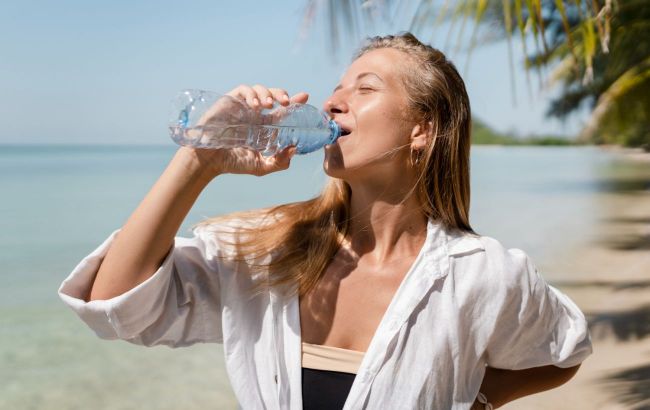Why your skin is dry even when you stay hydrated
 A nutritionist explained why the body does not absorb water (photo: Freepik)
A nutritionist explained why the body does not absorb water (photo: Freepik)
Sometimes the body may not absorb water properly, even if a person drinks plenty of fluids every day. This condition can lead to chronic dehydration, which negatively affects the heart, kidneys, and brain, according to Ukrainian nutritionist Olena Kostyuk’s Instagram page.
Why the body may not absorb water
Often, a person drinks 2–3 liters of water a day, yet still feels “dry,” fatigued, or swollen. The issue lies not in the amount of water consumed, but in how the body absorbs it.
Without electrolytes, food, and proper balance, water simply doesn’t “stay” in the tissues. As a result, the following symptoms may occur:
- swelling
- frequent urination
- mineral loss
According to the expert, proper hydration is not about "forcing yourself to drink," but about how you drink water.
The Ministry of Health recommends drinking 30–40 ml of water per kilogram of body weight. However, if you have kidney problems, high blood pressure, heart conditions, or other health issues, it’s best to consult your family doctor.
You don’t need to chug down glasses of water. It’s enough to start your morning with up to 400 ml of room-temperature water. During the day, keep a bottle nearby to train yourself to drink consistently.
"There are people who just don’t like drinking water. But it should always be within reach. You can also add some alkaline water," the expert added.
The best indicator is the color of your urine — it should be light yellow or lemon-yellow. If the color becomes darker, it likely signals dehydration.
It’s also important to monitor your sodium intake. If your diet includes a lot of ultra-processed foods — like sausages, hot dogs, or fast food — your body will likely have excess sodium, which causes water retention.
To flush out sodium, make sure you’re consuming enough potassium, fiber, leafy greens, and nuts. In other words, maintaining proper water-electrolyte balance comes down to conscious and healthy eating.
What doesn’t count as a water replacement
Coffee and tea
These contain caffeine, which has a diuretic effect. They don’t dehydrate you, but they aren’t full substitutes for water.
Juices
Even natural ones are high in sugar and don’t quench thirst as well as pure water.
Milk
While nutritious, it contains proteins and fats that require digestion, making it unsuitable as a primary fluid source.
Alcohol
It has a strong diuretic effect and actively promotes dehydration.
This material is for informational purposes only and should not be used for medical diagnosis or self-treatment. Our goal is to provide readers with accurate information about symptoms, causes, and methods of detecting diseases. RBС-Ukraine is not responsible for any diagnoses that readers may make based on materials from the resource. We do not recommend self-treatment and advise consulting a doctor in case of any health concerns.

